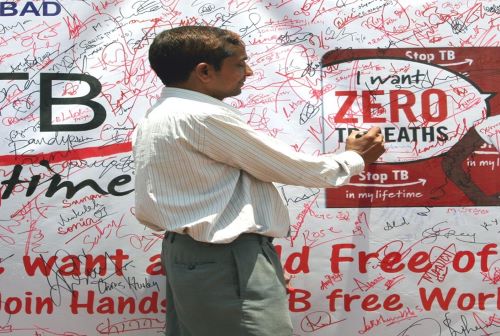Context
Tuberculosis (TB) remains a pressing public health challenge globally, with India being one of the countries most heavily burdened by this ancient disease. Despite concerted efforts and ambitious goals set by India's health authorities to eliminate TB, progress has been slow, and millions still suffer due to lack of access to quality care. The imperative for change is clear: a paradigm shift is needed urgently, one that places individuals affected by TB and their experiences at the forefront of efforts to combat this disease.
Recognizing Lived Experiences: The Heart of Person-Centred TB Care
At the core of this necessary shift is a fundamental recognition of the importance of prioritizing the needs and interests of TB patients and communities within the healthcare system. Too often, the lived experiences of those affected by TB are overlooked, leading to a gap in understanding their unique challenges and expectations. This oversight has resulted in an over-medicalization of TB, neglecting its broader implications as a human, gendered, economic, social, and environmental crisis.
In recent years, there has been a positive shift towards acknowledging and addressing these gaps, largely driven by the advocacy efforts of TB survivors and affected communities. Their voices have been instrumental in pushing for change, leading to modifications in policy and approaches to better meet the needs of those affected by TB. Initiatives such as nutritional support and efforts to combat stigma and gender disparities in TB care are steps in the right direction, but more needs to be done to bridge the divide between policy intentions and on-the-ground realities.
Bridging the Gap: Translating Policy Intentions into Action
To truly provide high-quality, person-centred TB care, India must prioritize targeted interventions aimed at improving access to diagnosis and treatment. This includes expanding the reach of TB testing facilities, particularly in rural and underserved areas, and ensuring the availability of free, affordable, and quality-assured TB drugs. Molecular testing, considered the gold standard, remains inaccessible to the majority of symptomatic patients, highlighting the urgent need for improvement in diagnostic services.
Moreover, efforts should focus on making TB care more humane by addressing mental health needs and implementing gender-responsive approaches. Strengthening community-based TB care models and empowering frontline healthcare workers to deliver comprehensive care closer to where patients live are essential steps in this direction. Survivor narratives underscore the importance of combating stigma, discrimination, and mental health challenges associated with TB, as well as addressing the side effects of treatment.
Addressing Social Determinants: A Multi-Sectoral Approach to TB Control
TB disproportionately affects marginalized segments of society, exacerbating existing socio-economic disparities. To combat this, a multi-sectoral approach is necessary, addressing poverty, malnutrition, inadequate housing, and air quality. Research has shown that nutritional supplementation can substantially reduce TB incidence, particularly among household contacts of TB patients. By tackling these underlying socio-economic determinants, India can make significant strides towards TB elimination and improve overall population health and well-being.
Harnessing Technology and Innovation: A Path Forward for TB Control
Technology and innovation offer promising avenues for enhancing TB care efforts in India. The adoption of artificial intelligence (AI) and digital health solutions for TB diagnosis, treatment adherence, and surveillance can revolutionize the delivery and accessibility of TB care. Additionally, investing in the development of better vaccines holds the potential to ultimately eliminate this airborne disease. By tapping into these advancements, India can bolster its TB control efforts and move closer to the goal of elimination.
Conclusion:
As World TB Day has come and gone, the imperative to prioritize person-centred care in TB control efforts remains as crucial as ever. By placing the needs and interests of TB patients and communities at the forefront, India can overcome barriers to access, reduce stigma, and enhance treatment outcomes. Addressing the social determinants of TB, leveraging technology and innovation, and adopting a holistic approach are key steps towards achieving TB elimination and creating a healthier future for all its citizens. It is imperative that India and the global community continue to recognize and prioritize the voices and experiences of those affected by TB in the fight against this persistent public health threat.
|
Probable Questions for UPSC Mains Exam
|
Source – The Hindu







